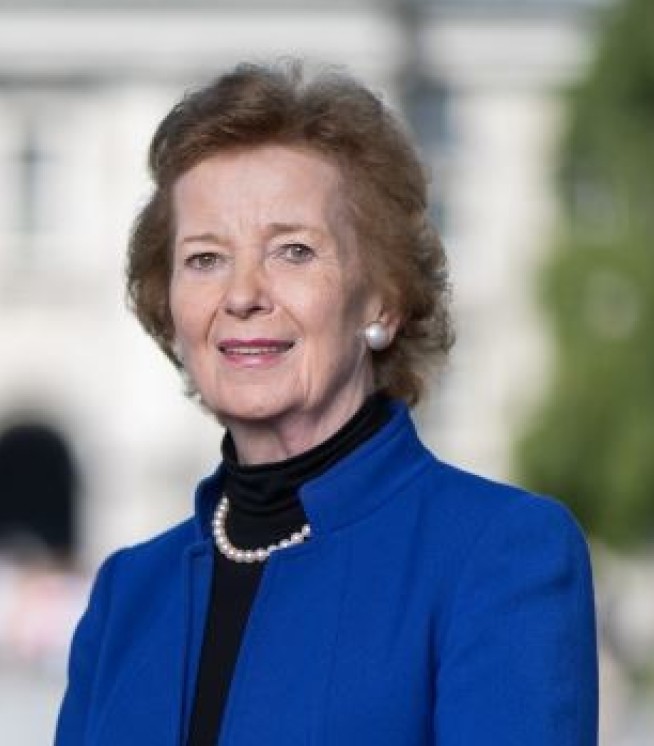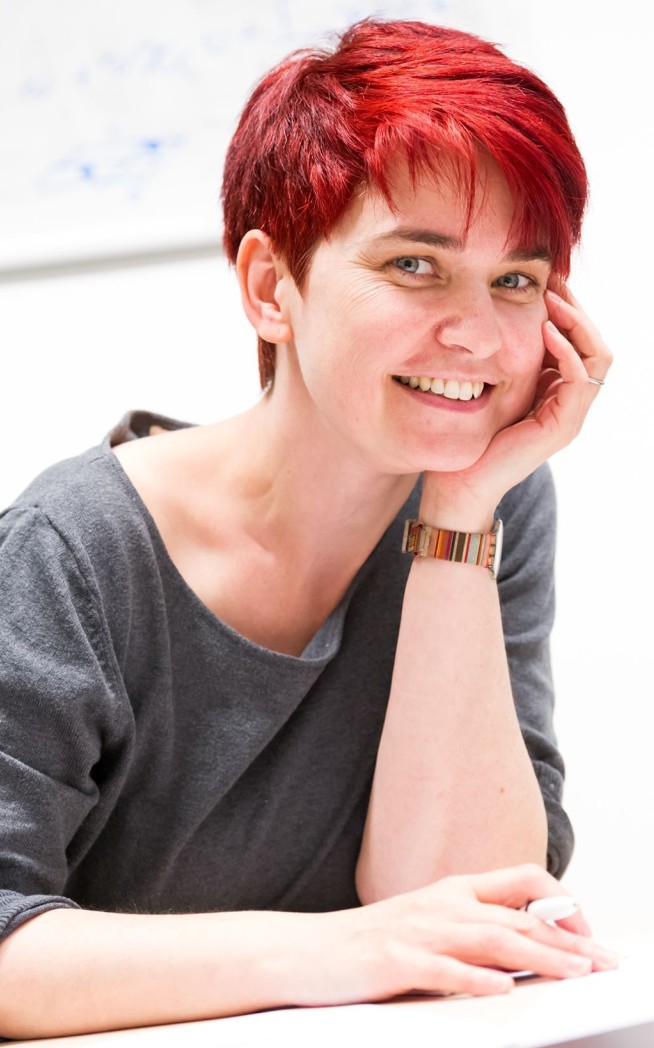Re-design the future, Mary Robinson urges at Transition to Zero Pollution launch
by George Hope

Mary Robinson, former President of Ireland, called for “a bold new vision for the future” at the launch of Transition to Zero Pollution.
Transition to Zero Pollution is Imperial’s new initiative to build new partnerships between research, industry and government - from fundamental science and engineering, systems thinking, human health, new business models, and policymaking - to realise our vision of a sustainable zero pollution future.

Mary Robinson, former UN High Commissioner for Human Rights and a renowned global climate justice campaigner, gave a keynote address at the online launch, arguing for climate justice – taking urgent action to avoid squandering the futures of our young people.
“Zero Pollution is a timely and valuable holistic concept to guide policymakers as the world tries to develop a viable and sustainable post-pandemic recovery,” Mrs Robinson told attendees from academia, industry, government and the public.
“I am enthused by the imagination and drive of the Zero Pollution initiative and have every confidence that Imperial will offer a propitious environment for this research to flourish, in keeping with more than a century’s worth of world-class achievements.”
I have every confidence that Imperial will offer a propitious environment for this research to flourish, in keeping with more than a century’s worth of world-class achievements. Mary Robinson
Transition to Zero Pollution, which is part of Imperial’s new Academic Strategy, will inspire a radical shift in industrial systems, technologies, and business models, underpinned by the development of innovative policies and governance structures.
Mrs Robinson, who is Adjunct Professor for Climate Justice at Trinity College Dublin, used the opportunity to emphasise the need for intergenerational dialogue, multilateralism and principled leadership in tackling the existential threat of the climate crisis.
The former President of Ireland drew comparisons between the crisis and the COVID-19 pandemic, both transnational threats that have exacerbated inequalities, arguing that gender equality and parity of decision-making must be at the core of how we recover from the pandemic and economic crisis.
"Our recovery must bend towards the science and justice," said Mrs Robinson, referencing the fact that we need to take climate scientists as seriously as we have health scientists during the pandemic.
A holistic approach to tackling pollution in all its forms
Mrs Robinson’s keynote was followed by a panel discussion with leading experts Baroness Brown of Cambridge (Julia King), Professor Mike Berners-Lee and Professor Nilay Shah.

Facilitated by Professor Mary Ryan, Vice-Dean (Research) in the Faculty of Engineering and the lead for Transition to Zero Pollution, the panellists discussed and debated issues from renewable energy, greenhouse gases and waste plastics, to education and the role of universities.
Baroness Brown of Cambridge, a crossbench member of the House of Lords and former head of the Faculty of Engineering at Imperial, argued that "the biggest challenge for our sustainable future is climate change... but in addressing climate change we've got to make sure that we don't do more damage.
"That is one of the good things about Transition to Zero Pollution - it brings together the broader issues around pollution."
Process systems engineer and Imperial’s Head of Chemical Engineering Professor Nilay Shah highlighted the initiative's emphasis on taking a systems approach and focusing on the whole lifecycle of the products, services, and processes: "We mustn't inadvertently create new problems when trying to solve old ones."
We have 10 years to take on the climate crisis. That doesn't mean we can wait for 9 and rush to action in the last year. Professor Mike Berners-Lee
Professor Shah emphasised the need to "paint a positive picture about the future" and to "create sketches of what a sustainable world would actually look like, so people can imagine living in it."
Professor Mike Berners-Lee, fellow of the Institute for Social Futures at Lancaster University and author of There Is No Planet B, said he was pleased to see the new initiative, because "climate change needs to be treated as a symptom of something much bigger - alongside issues like biodiversity loss, pollution, disease, and others. We need to join them all together for a solution."
Professor Berners-Lee went on to warn the audience: "We have 10 years to take on the climate crisis. That doesn't mean we can wait for 9 and rush to action in the last year."
Professor Mary Ryan then asked the panelists to describe their vision of a better future, in which the experts described a world where we do things we are passionate about for the good of people and the planet, where we restore balance, harness technology for good and respect the importance of nature.
Fulfilling our vision through the Academic Strategy
Professor Ian Walmsley, Imperial’s Provost, opened the event, calling Transition to Zero Pollution a “trailblazer”, focusing on restorative action for the planet.
One thing we know at Imperial is that we can have audacious goals and we can achieve them. Professor Alice P. Gast President
The Provost introduced the College’s new Academic Strategy, which provides Imperial with the focus to create a society that is healthy, sustainable, smart and resilient. Transition to Zero Pollution is one of the first actions of the strategy.
A vote of thanks was delivered by the College’s President, Professor Alice P. Gast, thanking Mrs Robinson for her keynote speech: "It's been an absolute pleasure to hear your wise and insightful messages.
"We've long been motivated by your unfaltering focus on sustainability and climate change, and your speech is the perfect way to kick off this important initiative. Your clarity, empathy and leadership are truly inspiring.
"One thing we know at Imperial is that we can have audacious goals and we can achieve them. Working together across countries, across sectors will be crucial as we build momentum in this multidimensional and intergenerational battle."
President Gast thanked the panelists for their "breadth of perspective, calmness, hopefulness and insight during these increasingly challenging times."
Keep up to date with the Transition to Zero Pollution initiative and follow us on Twitter.
Article text (excluding photos or graphics) © Imperial College London.
Photos and graphics subject to third party copyright used with permission or © Imperial College London.
Reporter
George Hope
Office of the President